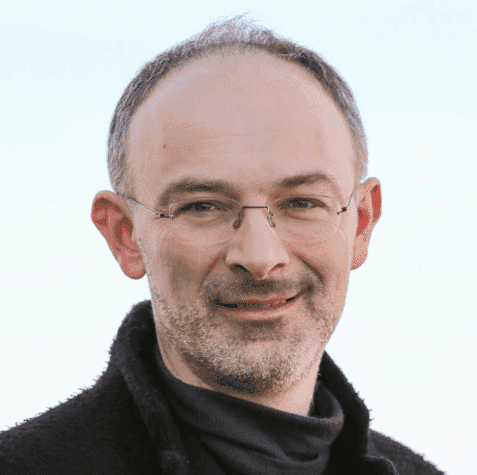Home>Colin Hay

Colin Hay
Professor
Centre for European Studies and Comparative Politics (CEE), The Laboratory for Interdisciplinary Evaluation of Public Policies (LIEPP)
Research Interest(s): European integration, Globalization
Discipline(s): Political Science
Language(s): English
Biography
Colin Hay is Professor of Political Sciences (Professeur des Universités) in the Centre d'études européennes et de politique comparée (Centre for European Studies and Comparative Politics) and Director of Doctoral Studies in the School of Research. Here is Affiliate Professor of Political Analysis at the University of Sheffield, UK, where he was the founding co-director of the Sheffield Political Economy Research Institute (SPERI). He was previously Professor of Political Analysis and Head of Department in POLSIS at the University of Birmingham, UK.
He studied at Cambridge and Lancaster Universities and has held visiting positions at the Center for European Studies at Harvard University (US), in the Department of Political Science at MIT (US), in the School of Politics and International Relations at Australian National University (Australia) and in the Department of Government at the University of Manchester (UK).
1. Research
Colin Hay’s research interests are diverse, ranging widely from the contemporary condition of political disaffection and disengagement which characterises the advanced liberal democracies, via the development of the state and the welfare state in the post-war period, the comparative political economy of neoliberalism, European integration and globalisation, and the role played by institutions and systems of classification in the construction of a functioning market (notably that for fine wines), to the ontological and epistemological foundations and limits of political analysis. These seemingly disparate research strands are linked by a common concern to interrogate and elucidate the often complex and contingent processes of change which characterise the advanced liberal democracies, together with a desire to locate these polities and political economies within their broader comparative and international settings. He is often regarded as one of the founders of the constructivist institutionalist approach to social, political and economic change.
He has been the co-recipient of major research grants from the ESRC on globalisation, European integration and the European social model, on political socialisation and long-term attitudinal change, and on anti-politics and trust in political elites. He is the author of Re-Stating Social and Political Change (Open University Press, 1996) which was awarded the Philip Abrams Awarding Body: ESRC Memorial Prize, The Political Economy of New Labour: Labouring Under False Pretences? (Manchester University Press, 1999), Political Analysis (Palgrave, 2002), Why We Hate Politics (Polity, 2007, winner of the WJM Mackenzie Prize), The Political Economy of European Welfare Capitalism (Palgrave, 2012, with Daniel Wincott), The Failure of Anglo-Liberal Capitalism (Palgrave, 2013), Civic Capitalism (with Anthony Payne, 2016) and Exploring Political Legacies (Palgrave, 2020, with Stephen Farrall & Emily Gray). In addition, he is the editor or co-editor of over 20 books and a number of journal special issues.
2. Teaching responsibilities
Limits of political analysis (Masters level, formation commune)
Analytical approaches to public policy (Masters level, EAP & EdR)
The political economy of globalisation in Europe (Masters levels, PSIA & EAP)
The political economy of welfare system transformation (Masters level, EdR, with Bruno Palier)
3. Editorial and professional responsibilities
Colin Hay is lead editor of New Political Economy (currently ranked 11th in Political Science and 7th in International Relations in the Thomson Reuters citation index rankings). He is also a founding co-editor of the journals Comparative European Politics (with Ben Rosamond of University of Copenhagen and Martin A. Schain of New York University) and British Politics (with Peter Kerr of the University of Warwick, Dave Marsh of University of Canberra and Stephen Kettell of the University of Warwick) and is He was a member of the UK’s 2008 Research Assessment Exercise (RAE) sub-panel for politics and international studies and is chair of the politics and international studies panel in the 2014 Research Excellence Framework (REF) . He was until recently President of the European University Institute’s Research Council (one of its two governing bodies).
4. Awards and Prizes
He is the recipient of a number of awards and prizes including the Philip Abrams Memorial Prize (1997), BISA ´s Review of International Studies Prize (2001), the UKPAC prize (2004), the WJM Mackenzie Prize (2008) and the Richard Rose Prize (2009). He was elected a Fellow of the United Kingdom’s Academy of the Social Sciences in 2009.
